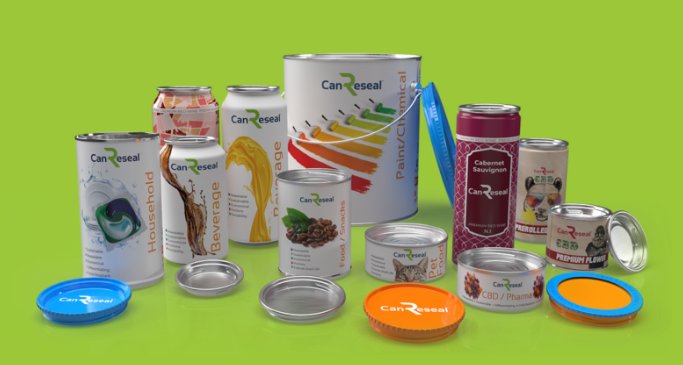

Canovation has introduced a resealable aluminium can, offering a solution for those looking to reduce plastic pollution while preserving the fizz in their bubbly drinks. This innovative yet straightforward design has potential applications beyond the beverage industry, including pharmaceutical storage, pet food packaging, household products, and more.

Image Source: Canovation
According to the company, the resealable can is a game-changer. Daniel Zabaleta, described by Miami's Local10.com as "the brains" behind the Fort Lauderdale Company, explained to the ABC affiliate that the key to this breakthrough lies in a specialised threading technique.
Additionally, the production process is more cost-effective than traditional methods, which means these savings could eventually benefit consumers. This innovation arrives at a pivotal moment for the beverage industry as companies reconsider their packaging strategies in response to growing consumer awareness of plastic pollution and its environmental impact.
CanReseal technology
Canovation, meanwhile, has garnered multiple design accolades for its innovative CanReseal technology, including the Food & Beverage award at Pack Expo's 2021 Technology Excellence Awards, as noted on the company's website. Despite delays in bringing the designs to market, Canovation COO Jeff Grajewski told Local10.com that the world's first resealable can is expected to hit shelves soon.
Benefits of aluminium
Unlike plastic, aluminium is infinitely recyclable, a fact that has profound environmental implications. According to an analysis by the 5 Gyres Institute, cited by Local10.com, approximately 170 trillion plastic pieces are currently polluting Earth's oceans. This pollution not only endangers marine life but also poses risks to human health, as microplastic particles consumed by sea creatures can ultimately make their way into our food chain. This concern is highlighted in research published in the International Journal of Environmental Research and Public Health.
In addition, the production of plastics typically relies on dirty fuels, which contribute to planet-warming emissions and release methane when exposed to sunlight. Research published in PLOS One highlights that plastics shed toxins linked to serious health issues, including cancer and dementia.



Responses






